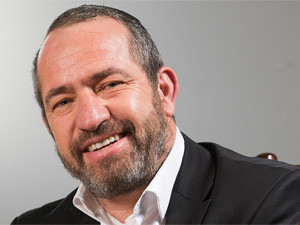
The merger between FoneWorx and Value+ Nettwork, to create a R478 million company, was the result of a "random" purchase of a stored value card at a retail till point by William Kirsh.
In an announcement to shareholders on Friday, FoneWorx said it would pay R191 million through the issue of shares at 211c for Value+, which includes a 50.1% stake in Opengate Technologies.
FoneWorx is buying 75% of Value+ from the Kirsh family and the balance from several other shareholders, including the Amazing Voucher Trust, Pepper Coin Investments and Worldwide Capital. At the end of the deal, Issie and William Kirsh, through family trusts, will own 49% of FoneWorx. All executive and non-executive directors will retain their current stakes.
Current CEO and founder of Value+, William Kirsh, will become executive chairman of the merged entity, while Mark Smith, currently FoneWorx CEO, will be CEO of the merged entity.
Based on the future profitability of Opengate's Network Services Division, FoneWorx (which will change its name to Value+) could potentially pay an additional amount in shares, capped at R960 million.
Random chance
Kirsh explains his introduction to FoneWorx occurred when he decided to do a "mystery shopper" test on Opengate's products, after Value+ bought the company earlier this year. He says that, because of circumstances at the time, the decision to buy the group was done faster than is usual.
After the deal was done, he randomly bought three stored-value cards, including one for CarbonWorx, which runs a carbon offsetting programme, in conjunction with the Department of Environmental Affairs.
The card ultimately led Kirsh to meet with CEO Smith. FoneWorx has five business entities, including BizWorx, which offers services including Fax2email, email2Fax and data storage, MediaWorx, which provides cellular-based services, and CarbonWorx.
Expansion plan
FoneWorx, which has a market capitalisation of about R272 million, ended the last financial year with R100 million in cash, making it an attractive partner in which to invest, says Kirsh. He adds that it also has strategic and complementary assets to that of Value+.
Kirsh explains that merging the two companies allows the new entity to consolidate sectors that are big, fragmented and growing. These include the corporate loyalty services sectors, which collectively are worth billions each year.
Value+ was three years in the making and centres on distributing "Value", which is commonly referred to as any form of rewards, such as discounts or benefits, such as a road side assistance service.
One of its units, Opengate, has two divisions. The Product Division provides around 20 million loyalty and gift cards a year to all major retailers in SA. Kirsh says it is the largest player in this sector of the market in SA.
The Network Services unit has developed and is rolling out a prepaid loading network positioned at the point of sale at key retailers in SA. Kirsh says Opengate is still "laying down the tracks" and building its point of presence. It is currently in about 1 000 retail outlets out of an estimated total market of 7 000.
This division also intends to move into the sub-Saharan markets where prepaid is a "way of life", adds Kirsh.
The network services unit has relationships with many content providers, such as those selling games, music, third-party gift card providers, banking service providers and other products, such as CarbonWorx.
It enables content partners to have value loaded at a growing number of points of presence throughout SA. The markets are very large internationally, but are in a very formative stage in SA, says Kirsh.
Opengate has also developed an insurance claims card, which targets the multibillion-rand insurance market, to substitute cash paid out by the insurance companies with a card loaded with value, says Kirsh. This ensures the value paid out for lost or stolen goods is not spent in the wrong places, he adds.
Payday
Kirsh explains that the potential earn out of R960 million in shares only kicks in for the financial year ended June 2016 and ends in 2018. The three-year earn-out is capped at R960 million, so if the profit-based formula goes over R960 million, FoneWorx will not pay out any more for the company.
If the new entity's profits gain substantially as a result of the earn-out, its share price is likely to follow suit, which means less dilution for current shareholders because shares will be issued based on prices prevailing at the time, explains Kirsh.
In addition, "the scale of profits and cash flow of our group, should they materialise in line with this earn-out, will be substantial larger, taking our group into another league". He believes the deal is a "win-win" and there is no cash or liquidity risk to FoneWorx.
The earn-out is averaged over three years and, if the network services division rolls out according to plan with increasing annual levels of profitability in the earn-out years, any profit spikes will be lessened, says Kirsh. He adds that averaging the earn-out also leads to a lower effective purchase price multiple paid for the division at the end of the earn-out period.
Share